2018-07-09 09:40
Panalpina Digital Hub launched to promote innovation in freight forwarding and logistics
The international freight forwarding and logistics company Panalpina has launched the Panalpina Digital Hub to embrace new technologies including the Internet of Things (IoT), artificial intelligence (AI) and blockchain that have the potential to disrupt the business in the coming years.
The new business unit, which reports directly to CEO Stefan Karlen, is to explore innovative technologies, develop new digital solutions for customers, and engage with digital start-up companies. Panalpina, a pioneer of international freight forwarding, is embracing modern information technology and the digitization of services to meet customer expectations and secure long-term growth.
As part of its digital transformation process, the company has launched the Panalpina Digital Hub, which is tasked with exploring disruptive technologies and developing new digital solutions for customers as well as realizing business opportunities for Panalpina. “We, like many of our competitors, are challenged by new market entrants with innovative business models and digital approaches that improve upon the old way of doing things. Additionally, our customers increasingly demand the digital experience they have become accustomed to as consumers: they now expect a similar experience in a business-to-business environment,” says Stefan Karlen, CEO of Panalpina.
“It is therefore obvious that the frontier of freight forwarding and logistics does not lie in new modes of transport, but in digital transformation. Knowing that, we want to shape our industry’s future with innovative digital solutions that create new levels of value for our customers and accelerate growth for our company in the years to come.”
The Panalpina Digital Hub will be focusing on innovative technologies with a potentially high impact on the freight forwarding and logistics industry, such as the Internet of Things (IoT), cloud computing, predictive analytics, artificial intelligence (AI) and blockchain. IoT is a technological development whereby all sorts of devices like smartphones, computers, etc. are connected to the internet.
“In the short term, IoT can help us streamline our processes and create more efficient supply chains. The challenge will lie in deriving the relevant actions from the wealth of IoT data,” explains Dr Luca Graf, head of the Panalpina Digital Hub.
“Predictive analytics and artificial intelligence will optimize products and services and create new ones, as can currently be seen in Amazon’s recommendation engine,” Graf continues. “Blockchain technology, which creates a digital record of every transaction made in a decentralized and secure way using cryptography, has the potential to disrupt the industry in the long term by impacting contracts, freight payments, chain of custody, and other issues facing the industry,” he states.
While it is difficult to predict when blockchain will reach commercial break-through, Panalpina plans to start pilots with the new technology in Q3. Recently, Panalpina also joined the Blockchain in Transport Alliance (BiTA).
The new business unit, which reports directly to CEO Stefan Karlen, is to explore innovative technologies, develop new digital solutions for customers, and engage with digital start-up companies. Panalpina, a pioneer of international freight forwarding, is embracing modern information technology and the digitization of services to meet customer expectations and secure long-term growth.
As part of its digital transformation process, the company has launched the Panalpina Digital Hub, which is tasked with exploring disruptive technologies and developing new digital solutions for customers as well as realizing business opportunities for Panalpina. “We, like many of our competitors, are challenged by new market entrants with innovative business models and digital approaches that improve upon the old way of doing things. Additionally, our customers increasingly demand the digital experience they have become accustomed to as consumers: they now expect a similar experience in a business-to-business environment,” says Stefan Karlen, CEO of Panalpina.
“It is therefore obvious that the frontier of freight forwarding and logistics does not lie in new modes of transport, but in digital transformation. Knowing that, we want to shape our industry’s future with innovative digital solutions that create new levels of value for our customers and accelerate growth for our company in the years to come.”
The Panalpina Digital Hub will be focusing on innovative technologies with a potentially high impact on the freight forwarding and logistics industry, such as the Internet of Things (IoT), cloud computing, predictive analytics, artificial intelligence (AI) and blockchain. IoT is a technological development whereby all sorts of devices like smartphones, computers, etc. are connected to the internet.
“In the short term, IoT can help us streamline our processes and create more efficient supply chains. The challenge will lie in deriving the relevant actions from the wealth of IoT data,” explains Dr Luca Graf, head of the Panalpina Digital Hub.
“Predictive analytics and artificial intelligence will optimize products and services and create new ones, as can currently be seen in Amazon’s recommendation engine,” Graf continues. “Blockchain technology, which creates a digital record of every transaction made in a decentralized and secure way using cryptography, has the potential to disrupt the industry in the long term by impacting contracts, freight payments, chain of custody, and other issues facing the industry,” he states.
While it is difficult to predict when blockchain will reach commercial break-through, Panalpina plans to start pilots with the new technology in Q3. Recently, Panalpina also joined the Blockchain in Transport Alliance (BiTA).
< Korea Shipping Gazette >
많이 본 기사
- ‘부산 환적·광양 수출입’ 컨물동량 1%대 성장한국해양교통안전공단 이사장 공개 모집“한국해운 80년 역사 담았다” 해운역사기념관 개관태웅로직스, 이천 풀필먼트센터 구축…이커머스 물류 진출부산항 컨테이너 물동량 2488만TEU…최대치 경신‘컨선·LNG운반선 덕’ 선박수출액 8년만에 300억弗 돌파국제물류협회, 마이스터고 대상 ‘영마이스터 물류캠프’ 운영해수부 신임 해사안전국장에 이수호 국장 임명기고/ 선박건조계약상 하자보증시 면책조항의 해석스위스 MSC, 부산-지중해 항로 개편…운송시간 단축
- 엑소텍, 프랑스서 물류 자동화 행사 ‘엑소서밋 2026’ 개최지난해 中-유럽 정기화물열차 317만TEU 운송…전년比 8%↑인천항만공사, 인공지능 기반 혁신 우수사례 발굴 주력싱가포르항공, 싱가포르-리야드 직항 노선 신설인사/ 국립목포해양대학교인사/ 해양수산부日 나고야항, 6년만에 260만TEU 달성MSC Highlights Expanded Intermodal Solutions Across Africa부산신항만, 에너지 취약계층 지원 성금 전달Hainan FTP's First Month of Island-Wide Special Customs Operations B...
스케줄 많이 검색한 항구













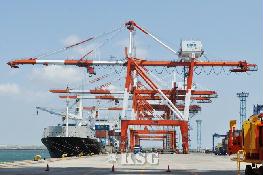


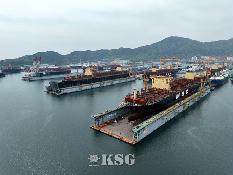
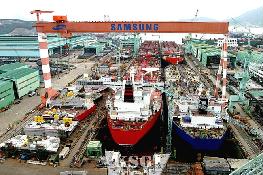



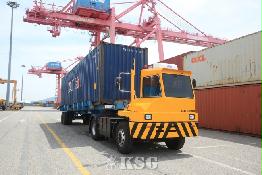






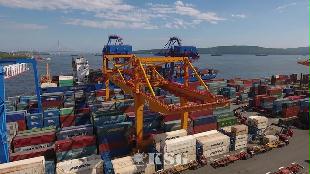
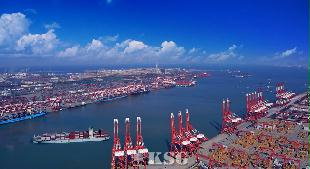
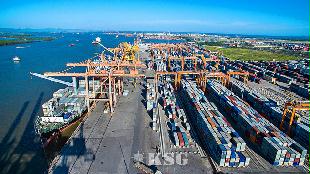
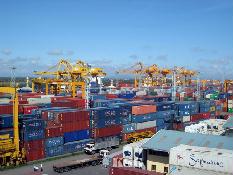





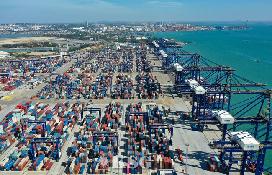

























0/250
확인